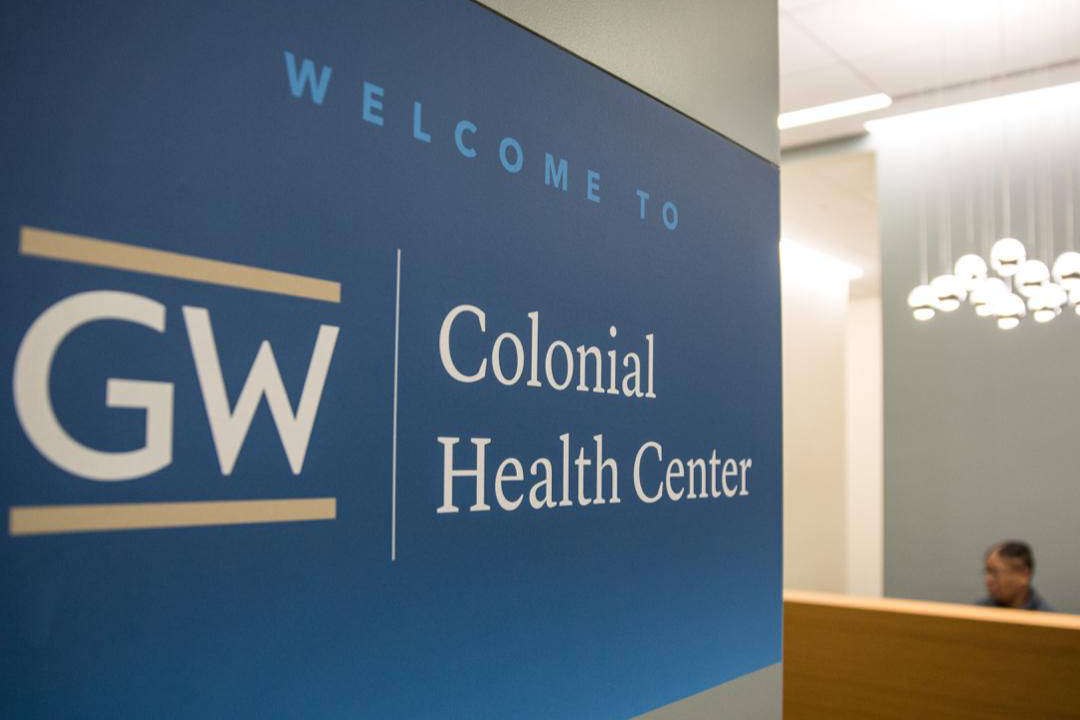As we celebrate National Nurse Practitioner Week, we honor the work of several NP-prepared faculty, staff and alumni of GW Nursing who are making a difference in the lives of GW students across the university.
Since 2020, seven nurse practitioners have been providing health and medical care to undergraduate and graduate students at the GW Health Center on the Foggy Bottom campus. They are:
Sue Bhati
Ph.D., M.S.N., M.A, N.E.C., B.S.N., FNP-BC, RN
Betsy Choma
D.N.P., M.S.N., B.S.N., PNCB, PALS, BLS
Elira Fifo
M.S.N., FNP-BC
Adriana Glenn
Ph.D., M.A., MN, RN, FNP-BC, CNE
Christina Johnson
M.S.N., FNP-C
Caroline Kemp
D.N.P., FNP-BC
Deidra Tiffany
M.S.N., RN, FNP
The nurse practitioners work mostly weekends and have been supporting the health center since the height of the pandemic. Since before the pandemic, GW Nursing students have done clinical rotations there for their community health clinical.
“We provide ambulatory care or outpatient care, which is health and medical care provided on an outpatient basis, and includes diagnosis, observation, consultation, treatment, and intervention of minor illnesses,” said Dr. Glenn. “We do not provide primary care, which does include the aforementioned services, but also would entail things like managing chronic conditions.”
NP’s philosophical orientation is inclusive of holistic care. They are mindful of the effects a diagnosis may have on a person's mental state; they are also considerate of the costs of treatments and will work with the student to create a plan of treatment they will follow and is affordable. “Because what good is it to prescribe a medication to treat an infection that is cost prohibitive to the student and they never get the medication and, thus, never treat the condition,” said Dr. Choma. “NP’s are typically excellent at providing patient education. When you couple the professions of NP and nursing faculty, it’s a win for both roles. As educators, we emphasize the importance of evidence-based practice (EBP) and as practitioners we apply EBP to our care of GW students.”
Given the types of roles that NPs fill, it is critical that they have the ability to practice to the full extent of their education, training, and scope of practice. This means greater efficiency of care for the patients, higher quality care and enhanced access. NPs are excellent at educating patients and meeting them where they are in terms of understanding their diagnosis and the treatment strategies. NPs largely focus on health and wellness promotion, which is unlike the medical model which is heavily focused on illness and disease. By focusing on primary care prevention, NP’s have the opportunity to empower patients to improve their health through lifestyle choices and changes.
“It is great to be able to continue to serve in a clinical capacity and maintain connections to the patients, which is often one of the most fulfilling aspects of working in the healthcare industry,” said Ms. Johnson. “This work also allows us to maintain our clinical skills, which our students value because so often they view faculty as out of touch with what is going on in the various healthcare settings. A common perception is that faculty only teach.”
Working as practicing NP’s allows faculty to dispel these misconceptions and enhances their teaching bandwidth with hands-on experience. Providing patient care keeps them connected to what is happening at the bedside and is one of the incredible benefits of the nursing profession.


